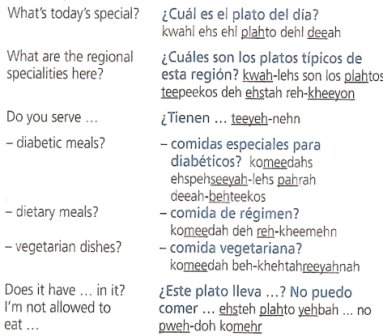By Lisa McCallum
 You know where you’re going and what you want to do there. You’ve purchased your guidebooks, booked your airline tickets, and started packing. The last thing on your mind is food; you’ll deal with that when you get there. You’re a vegetarian, though.
You know where you’re going and what you want to do there. You’ve purchased your guidebooks, booked your airline tickets, and started packing. The last thing on your mind is food; you’ll deal with that when you get there. You’re a vegetarian, though.
In North America, this is not such a big deal, but now you’re going to travel abroad. How easy will it to be to remain vegetarian in a world where meat is often a staple and vegetarianism is a choice that not every person has? Here are some tips to help you stick to your resolve on the road!
More veggie power: Vegetarian Food in Spain | Vegetarian Travel in Thailand
1. If you are flying, look into the vegetarian options the airline offers. Vegetarian meals will usually be either vegan or lacto-ovo (including dairy and/or eggs), so if you have a preference, make sure you specify your choice when you book. Unfortunately, vegetarian meals can consist of dry rice, a dab of curry sauce, and some limp salad greens which can leave you salivating for your neighbor’s meal of pasta with marinara, fresh veggies, bread, and cake–a meal suitable for vegetarians that just happens to be one of the two regular dinner choices. If you choose not to request a vegetarian meal from the airline, be prepared to take your chances that one of the two dinner choices will be meat-free by coincidence.
2. Consider bringing a small jar of peanut butter, crackers, granola bars, and snack mix to help tide you over until you can find some food after you land. Customs officials will usually let you bring in small amounts of sealed, unopened food.
3. In locally owned restaurants (as opposed to American-owned chains), you may find that most dishes contain meat or are fried in lard (pig fat), depending on the culture. Vegetarian meals are often easier to find in India and Southeast Asia, for example, than in Central and South America. By being careful in your ordering, you can avoid dishes that automatically have meat added to them. If you want to enjoy the local foods in some regions of the world, be aware that the foods might be cooked in animal-based oil. When living abroad, this is especially important to remember. During the two years I spent in China, there was no way to avoid eating vegetables cooked in lard unless I was going to cook every meal for myself. A vegetarian for ethical reasons, I put my morals aside to partake in the local foods and was wowed by the incredible flavor and variety of the vegetarian dishes.
4. Memorize how to say, “I don’t eat meat/I am a vegetarian/I eat vegetarian food” in the languages of the countries you are visiting, even if you are only spending a couple of days there. Knowing how to say these phrases will help avoid hassle when ordering in restaurants. The server can point out on the menu which dishes are vegetarian or can be made vegetarian.
5. Try ordering things that aren’t on the menu. If you can say or point to names of vegetables in your guidebook, the cook might whip you up a special concoction. That way, you can sample the local vegetables with rice or bread and your friends can sample the goat, beef, or intestines that are the specialty of the region. I had a severe aversion to green beans before a cook at a tiny restaurant in Mycenae, Greece, stir-fried some for me in a spicy tomato sauce. My meat-eating friends were even jealous after they sampled my dish.
6. It’s acceptable to indulge yourself once in a while at a foreigner-friendly joint. You might be embarrassed at first to be ordering an American breakfast in Thailand or cheese pizza in Mexico, but sometimes you just need a break from local food. Give in to your cravings for food you would eat at home, and then get on with your trip. I’ve heard numerous travelers moan, “I can’t believe I had pancakes for dinner!” when their stomachs were happy to have a break from curry for a day. Tourist-oriented restaurants might be the best place to find an occasional fresh salad, too. Just make sure that the vegetables have been washed in filtered water.
7. Balance out your need to try the local cuisine with trips to the local grocery store. Part of the fun of traveling is shopping–and that includes food. If you’re in a truly meaty country, this is one way of staying true to your vegetarianism without having to eat in restaurants for every meal. Plus, in practically every country around the world, some form of bread and cheese awaits you and will nourish you while you are on the hunt for your next decent vegetarian meal.
 8. Be prepared to be questioned about your eating habits, especially when traveling in developing nations. Cultures come with a history that you may not be aware of; their populations might have been vegetarians in the past, though not by choice. I learned while living in China that the country’s peasant farmers couldn’t afford to eat meat until the 1990s. Therefore, my refusal to eat meat there was quite an insult to them. You might encounter questions such as, “But you are in my country now. You will eat meat here, right?” You can choose to indulge your local hosts and eat a few bites of meat (risking illness) or stand by your beliefs and hope that your hosts will eventually learn to understand that you aren’t trying to insult them by not eating meat with them. When asked why you don’t eat meat, I recommend telling the truth (for moral or health reasons, you are allergic, or you don’t like the taste) and leaving it at that. If you act nonchalant, people will eventually leave you alone about it.
8. Be prepared to be questioned about your eating habits, especially when traveling in developing nations. Cultures come with a history that you may not be aware of; their populations might have been vegetarians in the past, though not by choice. I learned while living in China that the country’s peasant farmers couldn’t afford to eat meat until the 1990s. Therefore, my refusal to eat meat there was quite an insult to them. You might encounter questions such as, “But you are in my country now. You will eat meat here, right?” You can choose to indulge your local hosts and eat a few bites of meat (risking illness) or stand by your beliefs and hope that your hosts will eventually learn to understand that you aren’t trying to insult them by not eating meat with them. When asked why you don’t eat meat, I recommend telling the truth (for moral or health reasons, you are allergic, or you don’t like the taste) and leaving it at that. If you act nonchalant, people will eventually leave you alone about it.
9. If you are really offended or grossed out by seeing the bodies of geese, pigs, goats, and other animals hanging on display, don’t go to the meat section of the local outdoor market. Stick to the fruit and vegetable sections. Markets will inevitably have meat on display for shoppers to inspect and buy. You will come face to face with mortality in the glossy blue eyes of a goat and the prickly hide of a hanging pig. We are protected from these images in American grocery stores, where generic meats are cleanly-wrapped pink hunks on Styrofoam and people can forget that meat actually comes from animals. Markets in developing countries will never let you forget that. You might even be able to convert some of your fellow travelers to being vegetarians after they spend some time wandering through the meat market of any village.
10. On the upside, being a vegetarian while traveling abroad means you will most likely get sick less often than your meat-eating friends. Many food-borne illnesses are caused by eating meat. Also, meat-eaters abroad are often encouraged to try types of meat that they might not care to eat, such as innards, brains, heart, tongue, and chicken feet. Once you have established yourself as a vegetarian, be grateful that you won’t be expected to try these local delicacies and you will be left to enjoy your vegetarian meal in peace.
*****
Lisa McCallum is a writer, traveler, and teacher of English as a Second Language to adult immigrants and refugees in the Twin Cities.
Photo Credits:
Carrots: Beth Whitman
Bread and Cheese – Lisa McCallum
